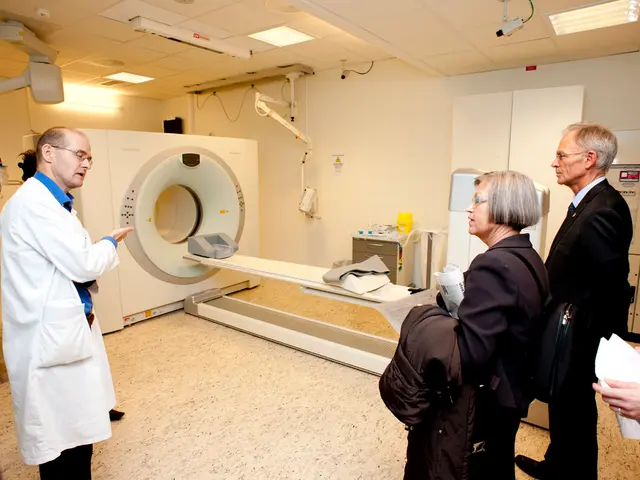Elderly women face significant financial hardship, with approximately 2.1 million women experiencing such troubles. - Elderly women face heightened risks of impoverishment
Germany's Old-Age Poverty Particularly Affects Women, According to New Data
More than three million pensioners in Germany are living in poverty, a significant increase from 2005, according to the latest statistics available. This number, which stood at approximately 2 million in 2005, rose to 3.4 million last year.
These findings have sparked concerns among politicians and activists, who argue that the country's pension system is biased against women. Sahra Wagenknecht, chairwoman of the Sahra Wagenknecht Alliance (Bündnis Sahra Wagenknecht, BSW), has been a vocal critic of the current system and has advocated for a pension model similar to Austria's.
"Our pension system is hostile to women," Wagenknecht told "Stern" magazine. She claims that the proposed switch to the Austrian pension model would provide a much-needed solution, with her party demanding a minimum pension of 1,500 euros after 40 years of insurance. In Austria, most employed individuals contribute to the statutory pension, resulting in an average pension significantly higher than in Germany.
The issue of pension reform has become a major point of contention in Germany's political landscape. Labor Minister Barbara Bas (SPD) has proposed that self-employed and civil servants should contribute to the statutory pension insurance, a proposal met with resistance from representatives of the Union.
Wagenknecht's Alliance, founded in early 2024, champions addressing old-age poverty, a problem particularly severe among women in Germany. The Alliance's political stance consistently emphasizes combating economic disparities that leave seniors impoverished, such as those faced by elderly women who must resort to collecting deposit bottles to make ends meet.
The existing economic system, according to the Alliance, widens the wealth gap and fails vulnerable populations like the elderly poor, highlighting a need for a radical left-wing reform of social and economic policies to ensure dignified living conditions for seniors, particularly women who have historically faced pension disadvantages due to their participation in the gendered labor market and caregiving roles.
In summary, Wagenknecht's Alliance seeks a social and economic framework that echoes the principles embodied in Austria's solidarity pension system. This would provide minimum pension guarantees and measures to compensate for career breaks related to child-rearing and caregiving, effectively reducing old-age poverty among women. However, it is unclear if the Alliance proposes a wholesale adoption of the Austrian pension model.
- The increase in old-age poverty in Germany, particularly among women, has prompted discussions about the need for a policy change, such as adopting a vocational training program or a pension model like Austria's, which could provide better financial security and combat this issue.
- The issue of old-age poverty among women in Germany has been raised in the context of science, health-and-wellness, and policy-and-legislation, with organizations like Sahra Wagenknecht Alliance focusing on advocating for reforms to address this problem.
- One solution proposed by Sahra Wagenknecht Alliance is a switch to a pension model similar to Austria's, which offers a minimum pension of 1,500 euros after 40 years of insurance and could help reduce old-age poverty among women in Germany.
- Wagenknecht's Alliance also emphasizes seeking a social and economic framework informed by the principles of Austria's solidarity pension system, including vocational training and measures to compensate for career breaks related to child-rearing and caregiving, which could help address old-age poverty and ensure dignified living conditions for seniors, particularly women.







